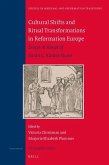These reforms affected ideals of femininity and masculinity in the areas of marriage, domesticity, and dress. By the creation of a "discourse of respectability," says Kent, Tamil Christians hoped to counter the cultural justifications for their social, economic, and sexual exploitation at the hands of high-caste landowners and village elites. Kent's focus on the interactions between Western women missionaries and the Indian Christian women not only adds depth to our understanding of colonial and patriarchal power dynamics, but to the intricacies of conversion itself. Posing an important challenge to normative notions of conversion as a privatized, individual moment in time, Kent's study takes into consideration the ways that public behavior, social status, and the transformation of everyday life inform religious conversion.
With the emergence of Hindu nationalism, the conversion of Indians to Christianity has become a volatile issue, erupting in violence against converts and missionaries. At the height of British colonialism, however, conversion was a path to upward mobility for low-castes and untouchables, especially in the Tamil-speaking south of India. In this book, Eliza F. Kent takes a fresh look at these conversions, focusing especially on the experience of women converts and the ways in which conversion transformed gender roles and expectations.
Hinweis: Dieser Artikel kann nur an eine deutsche Lieferadresse ausgeliefert werden.
With the emergence of Hindu nationalism, the conversion of Indians to Christianity has become a volatile issue, erupting in violence against converts and missionaries. At the height of British colonialism, however, conversion was a path to upward mobility for low-castes and untouchables, especially in the Tamil-speaking south of India. In this book, Eliza F. Kent takes a fresh look at these conversions, focusing especially on the experience of women converts and the ways in which conversion transformed gender roles and expectations.
Hinweis: Dieser Artikel kann nur an eine deutsche Lieferadresse ausgeliefert werden.








